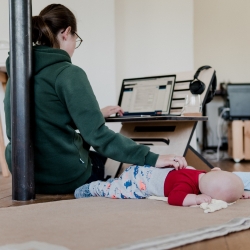To provide the best experiences, we use technologies like cookies to store and/or access device information. Consenting to these technologies will allow us to process data such as browsing behaviour or unique IDs on this site. Not consenting or withdrawing consent, may adversely affect certain features and functions.
The technical storage or access is strictly necessary for the legitimate purpose of enabling the use of a specific service explicitly requested by the subscriber or user, or for the sole purpose of carrying out the transmission of a communication over an electronic communications network.
The technical storage or access is necessary for the legitimate purpose of storing preferences that are not requested by the subscriber or user.
The technical storage or access that is used exclusively for statistical purposes.
The technical storage or access that is used exclusively for anonymous statistical purposes. Without a subpoena, voluntary compliance on the part of your Internet Service Provider, or additional records from a third party, information stored or retrieved for this purpose alone cannot usually be used to identify you.
The technical storage or access is required to create user profiles to send advertising, or to track the user on a website or across several websites for similar marketing purposes.
 The amount of change that the average employee can absorb without suffering fatigue in 2020 has been cut in half compared to 2019, according to Gartner, Inc. Amid worries about the economy, job security, their health and the health of their loved ones, employees’ capacity to take on change in the workplace has plunged significantly. More →
The amount of change that the average employee can absorb without suffering fatigue in 2020 has been cut in half compared to 2019, according to Gartner, Inc. Amid worries about the economy, job security, their health and the health of their loved ones, employees’ capacity to take on change in the workplace has plunged significantly. More →






 Working from home may have been an adjustment at the start of the pandemic lockdown, but according to
Working from home may have been an adjustment at the start of the pandemic lockdown, but according to 
 A new global study by
A new global study by 
 Envoy has released results from its
Envoy has released results from its 






 A new survey published by
A new survey published by 


 Fairness around office rota decisions and implementation is a top employee concern, claims new research by
Fairness around office rota decisions and implementation is a top employee concern, claims new research by 
 A new report from
A new report from 








September 8, 2020
Frontline and front of mind; communicating with employees away from HQ
by Julien Lesaicherre • Comment, Flexible working, Technology